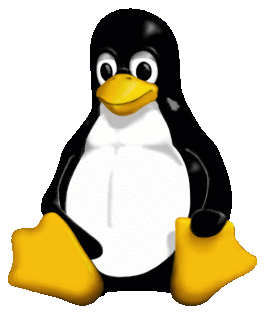About
Background
Tux Machines is a popular news site focusing on Free/libre and Open Source software, especially GNU/Linux. Founded by Susan (srlinuxx) in 2004, the site aims to share relevant news with its valued community of readers.
Scope of coverage
 The site places great focus on GNU, Linux, and other intricate systems that utilise these, such as Android, Chrome OS, and Tizen. Of lesser interest are issues that relate purely to development and Free/Open Source software. Games, applications, instructional posts and proprietary software are habitually covered, but they are grouped and posted only periodically. Tux Machines is primarily focused on Linux, but it occasionally also covers BSD/UNIX, Minix, and lesser known operation systems. Some of our news sources include standards, antitrust and so on.
The site places great focus on GNU, Linux, and other intricate systems that utilise these, such as Android, Chrome OS, and Tizen. Of lesser interest are issues that relate purely to development and Free/Open Source software. Games, applications, instructional posts and proprietary software are habitually covered, but they are grouped and posted only periodically. Tux Machines is primarily focused on Linux, but it occasionally also covers BSD/UNIX, Minix, and lesser known operation systems. Some of our news sources include standards, antitrust and so on.
Contact Details
See our contacts page for up-to-date details. Communication is also facilitated by our forums.
Going Ads-free in 2013
Going forward, Tux Machines does not have ads. Instead it relies on readers' support and is run as a public service. █

-

- Login or register to post comments
 Printer-friendly version
Printer-friendly version- 910556 reads
 PDF version
PDF version
More in Tux Machines
- Highlights
- Front Page
- Latest Headlines
- Archive
- Recent comments
- All-Time Popular Stories
- Hot Topics
- New Members
digiKam 7.7.0 is released
After three months of active maintenance and another bug triage, the digiKam team is proud to present version 7.7.0 of its open source digital photo manager. See below the list of most important features coming with this release.
|
Dilution and Misuse of the "Linux" Brand
|
Samsung, Red Hat to Work on Linux Drivers for Future Tech
The metaverse is expected to uproot system design as we know it, and Samsung is one of many hardware vendors re-imagining data center infrastructure in preparation for a parallel 3D world.
Samsung is working on new memory technologies that provide faster bandwidth inside hardware for data to travel between CPUs, storage and other computing resources. The company also announced it was partnering with Red Hat to ensure these technologies have Linux compatibility.
|
today's howtos
|









.svg_.png)
 Content (where original) is available under CC-BY-SA, copyrighted by original author/s.
Content (where original) is available under CC-BY-SA, copyrighted by original author/s.

Recent comments
1 year 12 weeks ago
1 year 12 weeks ago
1 year 12 weeks ago
1 year 12 weeks ago
1 year 12 weeks ago
1 year 12 weeks ago
1 year 12 weeks ago
1 year 12 weeks ago
1 year 12 weeks ago
1 year 12 weeks ago